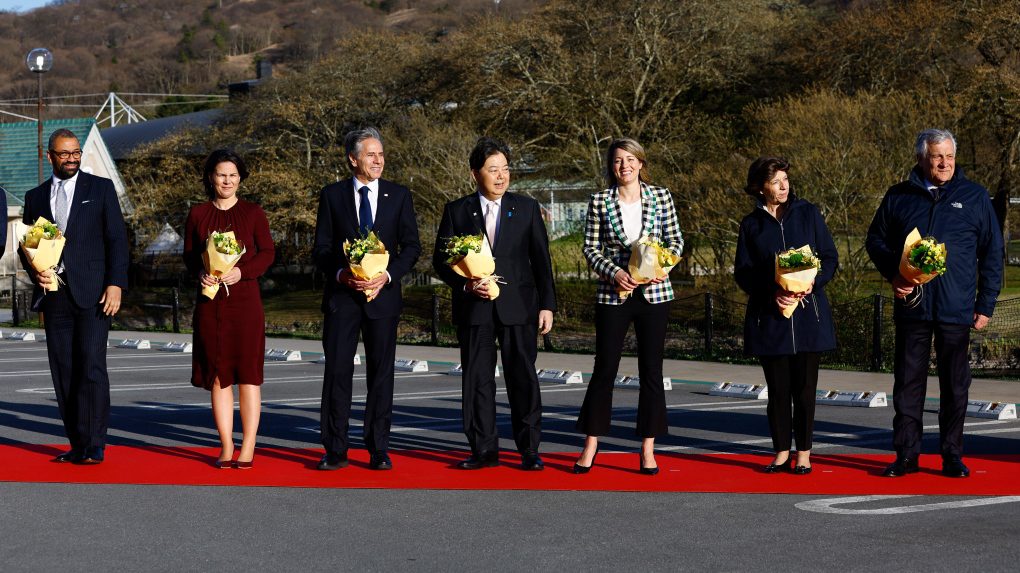Global Courant 2023-04-16 22:15:00
OTTAWA –
G7 environment and energy ministers held two days of talks in northern Japan on Sunday without heeding Canada’s call to set a timeline for phasing out coal-fired power stations.
In their 36-page communiqué following the Sapporo meeting, ministers reiterated their commitment to achieving net-zero greenhouse gas emissions by 2050, and pledged to work with other countries to end new coal-fired power projects who don’t. take measures to reduce emissions.
“We call on other countries and will work together to terminate new unabated coal-fired power generation projects worldwide as soon as possible to accelerate the transition to clean energy in an equitable manner,” the document said.
Canadian Environment Minister Steven Guilbeault told Japan’s public broadcaster last week that he hoped to see “strong language” in the final statement on coal phase-out.
The leaders affirmed instead that they must achieve a “predominantly low-carbon energy sector” by 2035.
In a statement posted to Twitter on Sunday, Guilbeault said he still welcomed the G7 countries’ shared commitment to accelerate coal phase-out, but also called for more urgency.
“For Canada, phasing out coal-based electricity generation by 2030 has never been more urgent,” the statement read.
“The science is clear, countries, especially the G7, need to do more and on a faster timeline to tackle climate change and keep the Paris Agreement temperature target within reach.”
In the 2015 Paris Agreement, 196 countries, including Canada, agreed to set national targets to reduce greenhouse gas emissions and prevent the planet from warming more than two degrees on average compared to pre-industrial levels.
Guilbeault has argued for consensus on phasing out coal by 2030, as Canada has pledged, but G7 environment ministers have struggled to agree on the issue as countries like Japan continue to rely on electricity from coal.
Japan instead advocated its own natural strategy that includes using what the country calls “clean coal,” capturing emissions.
A report released earlier this month by the Global Energy Monitor, a group that tracks global energy projects, found that the G7 countries account for 15 percent of global coal capacity.
Last year, the global capacity to burn coal for energy grew, though that was mainly because so many new factories opened in China that it outweighed efforts to close them in other parts of the world, the report said.
“The truth is that coal is the number one low-hanging fruit that needs to be replaced as soon as possible,” said Andrew Weaver, a climate change policy researcher and professor at the University of Victoria.
Weaver, who formerly led British Columbia’s Green Party, criticized the G7 for failing to meet strict timelines to phase out coal-fired electricity, pointing instead to the promise of zero by 2050.
“No person at that table will be held accountable for not making that goal, because it’s way beyond their political lives, and therefore it’s completely pointless,” he said.
The talks in Sapporo also resulted in commitments to work together on sensible and just environmental policies in the fields of energy, water, agriculture and the sea.
“I believe we have been able to show the international community that our commitment to climate change and environmental issues is unwavering, even in the context of the situation in Ukraine,” Japanese Environment Minister Akihiro Nishimura said after the talks concluded.
Ministers also committed to ending plastic pollution, with a target of zero new plastic pollution by 2040, as part of their priorities ahead of the G7 leaders’ summit in Hiroshima in May .
This report from The Canadian Press was first published on April 16, 2023.
—
With files from The Associated Press








